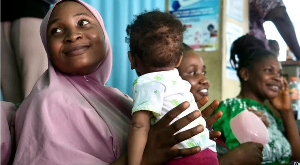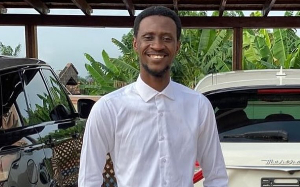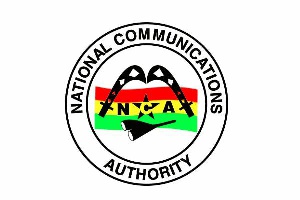Nigeria, which has more malaria deaths than any other country in the world, has begun rolling out a vaccine against the disease for the first time.
The West African nation accounts for almost a third of those who die from malaria each year.
The vaccine being introduced – called R21/Matrix-M – is the second to be approved by the World Health Organization (WHO) and is being given to children between five and 15 months old.
Researchers say it is 75% effective but health experts recommend using it alongside other malaria prevention tools, such as mosquito nets and insecticides.
The roll-out started in two of the worst-affected states - Bayelsa and Kebbi – and the plan is to expand it to the rest of the country by next year.
Happiness Idia-Wilson’s 11-month-old son was the first to receive the vaccine at a ceremony in Bayelsa.
She said she was doing it "for the safety of the child, for him to be protected".
"I will tell mothers, and I will invite people [to be vaccinated]," the mother added.
Bayelsa’s commissioner for health, Prof Seiyefa Brisibe, said the state would be carrying out health campaigns to promote the use of the vaccine in all the local languages.
In 2022, Nigeria accounted for 27% of global malaria cases and 31% of malaria deaths, according to the WHO, with children under five and pregnant women being the most vulnerable.
Africa overall saw 95% of those deaths, amounting to some 580,000 people.
"We are confident that this vaccine, in combination with other preventive measures, will drastically reduce the burden of malaria in Nigeria and help us move closer to achieving the goal of a malaria-free Africa," said Dr Walter Mulombo, WHO representative in Nigeria.
The government estimates that Nigeria loses $1.1bn (£870m) each year due to lost productivity and health expenditure linked to malaria.
R21/Matrix-M, developed by the Jenner Institute at Oxford University, uses three doses administered four weeks apart and a booster dose given after one year.
Earlier this year, Ivory Coast and the Democratic Republic of Congo also began using the vaccine.
Ghana, Kenya and Malawi have trialled another malaria vaccine - RTS,S.
Nigeria was not included in the subsequent roll-out of the jab by the WHO to 12 African countries.
Africa News of Tuesday, 3 December 2024
Source: bbc.com

















